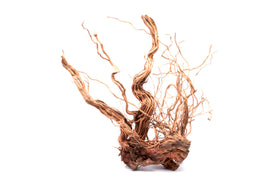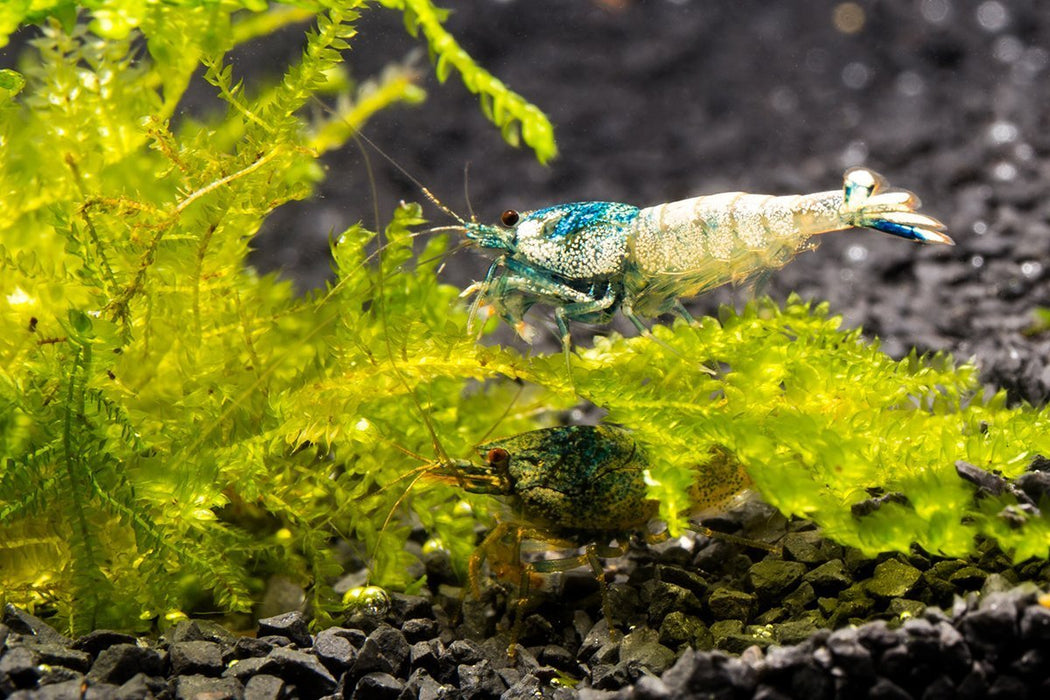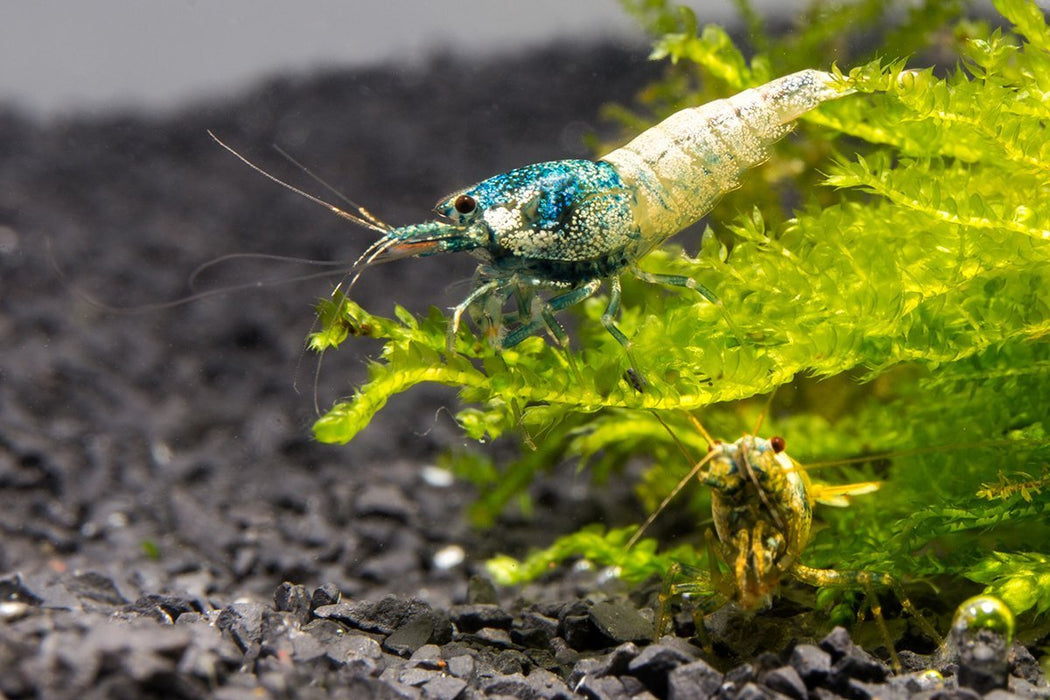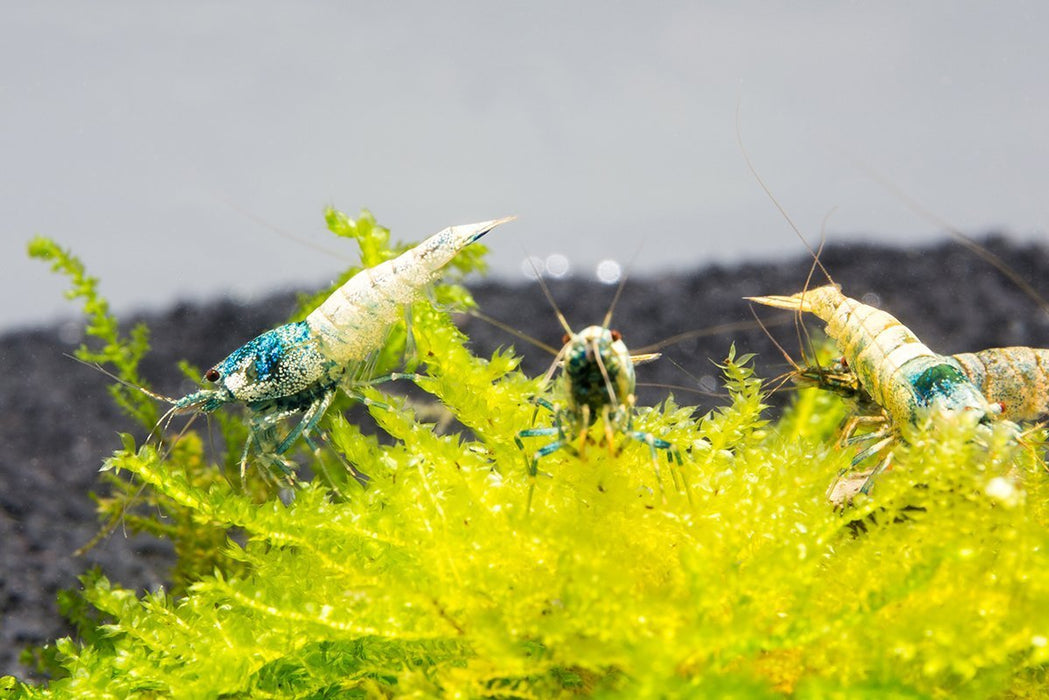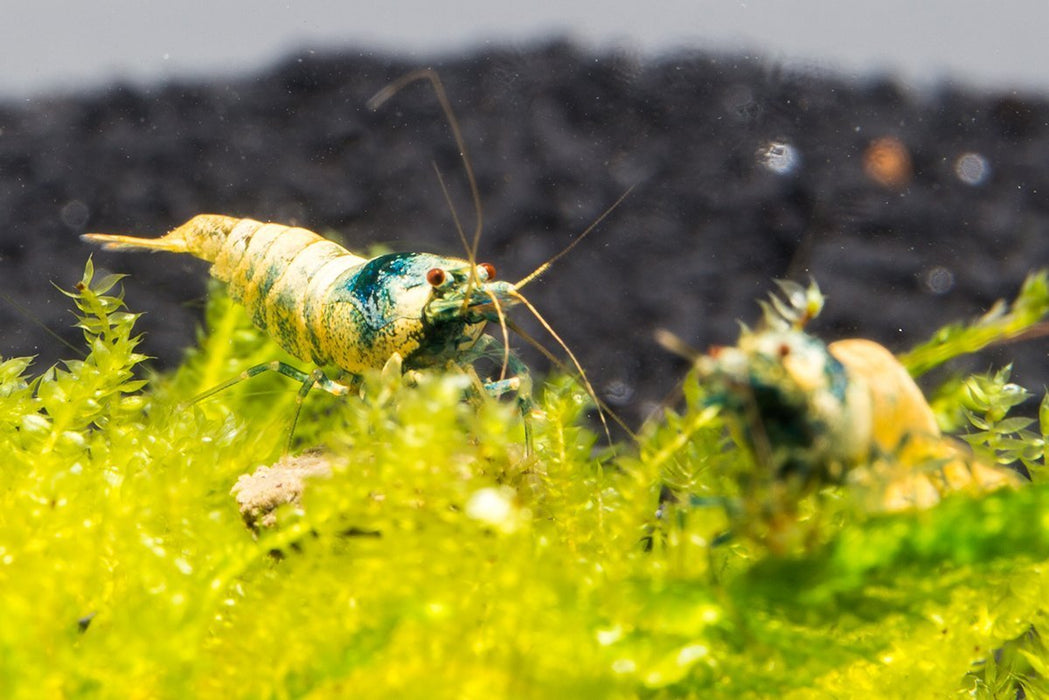
Blue Bolt Shrimp (A Grade)
Common Name: Blue Bolt Shrimp, Caridina Cantonensis
**Note: All livestock orders will come carefully packaged with solid wall Styrofoam insulation and shipped via 1-day shipping only. No extra insulation needs to be added to your cart for your livestock.
The Blue Bolt Shrimp is a stunning addition to a freshwater aquarium. Blue Bolt Shrimp are very active as they scavenge the tank, cleaning up waste. They love to feed off of naturally occurring biofilm and algae, especially in a planted tank. These shrimp are not aggressive and can be kept as companions with other species. These shrimp are not recommended for beginners, particularly because their difficult care requirements means that there is little room for mistakes. However, with a little experience under your belt these gorgeous shrimp are worth the extra effort.
Blue Bolt Shrimp are a “mischling” or crossbreed. Mischling refers to shrimp that are the result of breeding Crystal Red or Black Shrimp (in this case black) with Taiwan Bee Shrimp. The Blue Bolt Shrimp is one result of such crosses. Blue Bolt Shrimp exhibit a range of brilliant blue coloration from intense royal blue to aquamarine with varying translucency. High grade shrimp have blue coloring with more coverage and opacity than a low grade shrimp. These shrimp may have white spotting, especially on the tail. Sexing Blue Bolt Shrimp can be somewhat difficult until the shrimp begin to mature. Female shrimp have slightly larger tails and display a “saddle” formation on the upper body, behind the head, where eggs are stored before fertilization. When female shrimp are “berried”, or have eggs ready for fertilization, the saddle shape will appear more prominent. Once the shrimp are fully-grown the males will be smaller than the females.
Blue Bolt Shrimp are very sensitive to water conditions, as with many shrimp that are the result of inbreeding for desirable characteristics. These shrimp require a water temperature range of 68°-74° F, and pH range of 5.6 to 6.2.
Blue Bolt Shrimp will feed off of algae, biofilm, and plant waste that naturally builds up, especially in a planted tank. Supplemental feeding once per day or every other day may be necessary depending on how many shrimp are in your tank. Be sure to remove any excess food that is left after feeding, as this can increase ammonia and nitrite levels. Excess food means that the shrimp are being overfed, which can damage their health and even kill them. When your shrimp molt out of their shell, make sure to leave the shells in the tank. They provide the necessary calcium in the shrimp’s diet.
Blue Bolt Shrimp males are not aggressive breeders, and they may be very difficult to raise. Keep in mind that if you are keeping shrimp with other species of fish, or possibly aggressive shrimp species, this may affect reproduction. If the shrimp feel threatened or don’t have places in your tank to hide they may not breed.
Blue Bolt Shrimp make an impressive addition to an experienced shrimp hobbyist’s aquarium. If you are looking for more of a challenge than Crystal Red or Black Shrimp, Blue Bolt Shrimp are a great place to start. Although these shrimp require more care and attention, keeping these stunning and active shrimp can be extremely rewarding.
Care: Intermediate - Difficult
Temperature Range:64-76 F
pH: 6.0-7.5
TDS: 100-200 ppm
GH: 4 - 6 dGH
KH: 0 - 2 dKH
Life Span: 1 - 2 years
Size: 0.75 - 1.25”
Diet: Omnivore
Habitat: Freshwater, Fully Aquatic
Breeding: Easy
Gestation Period: 30 Days
Our Water Parameters:
Temperature Range: 68-76 F
pH: 6.0-6.5
TDS:100-150
GH: 3 - 5
KH: 0 - 2
Size: .75 - .95"
Tank Raised




